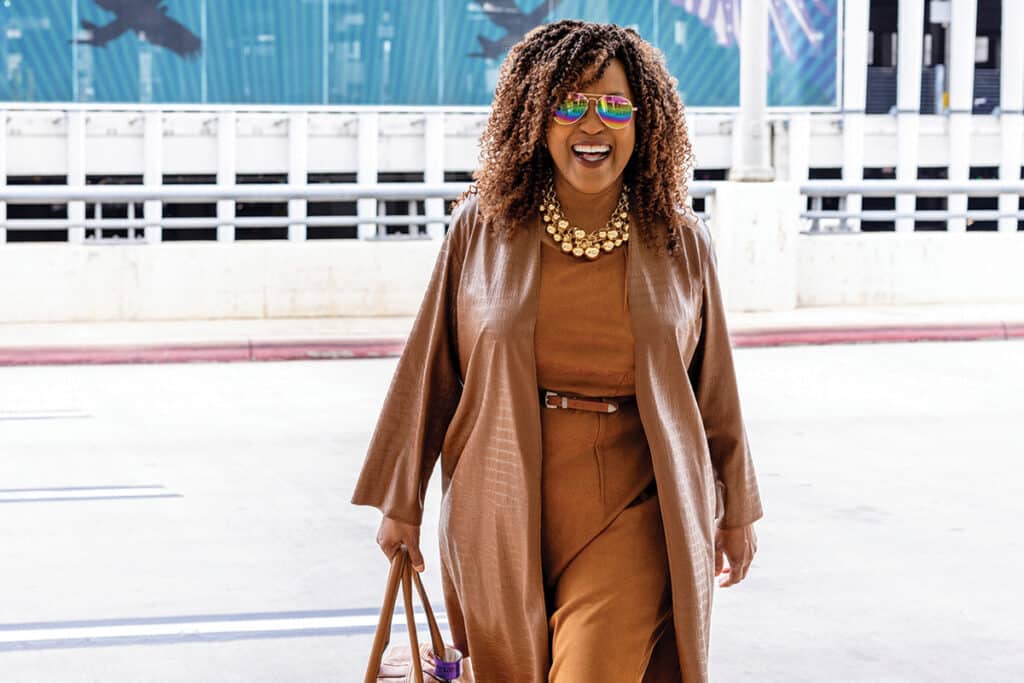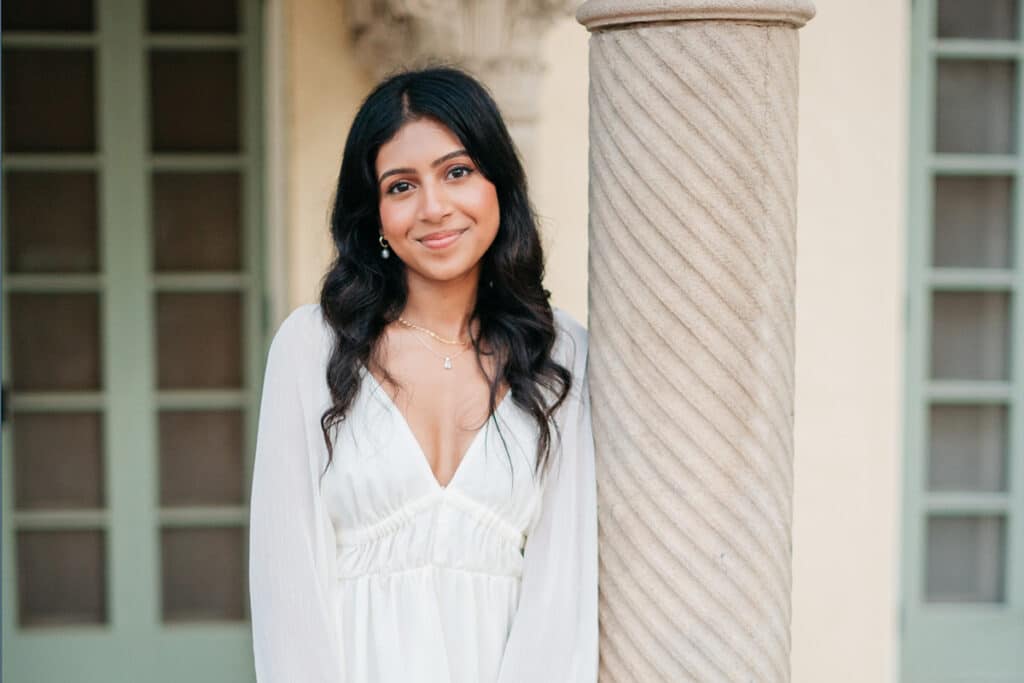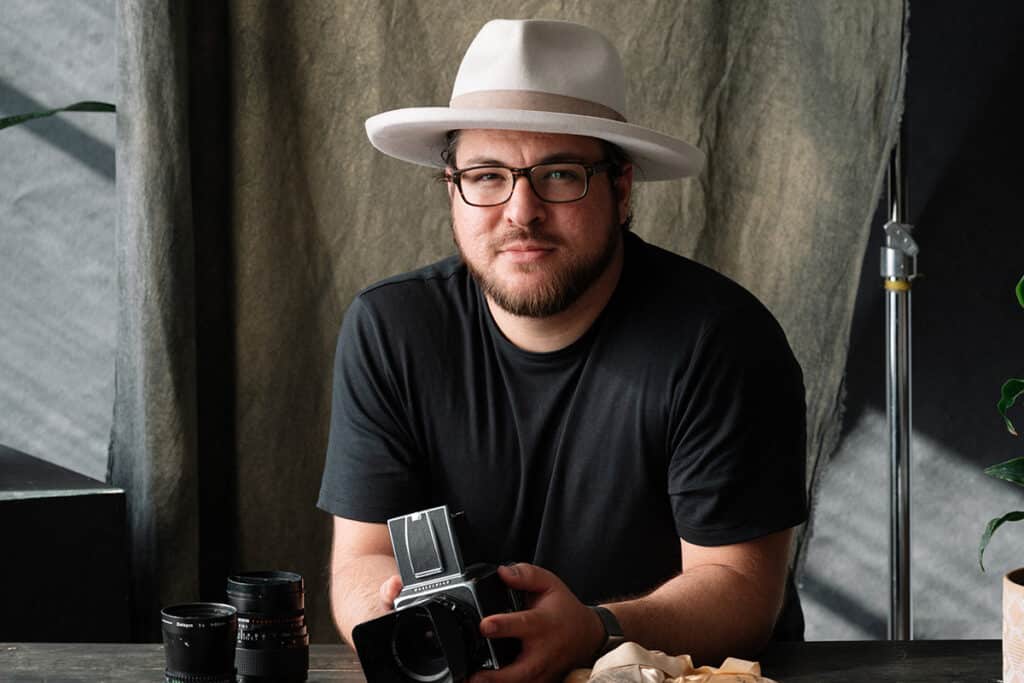Photography by David Teran

As far back as I can remember, there has always been a woman who helped me get to my next big thing: My mom drove me to excel in school so I could be the first in our family to graduate college (shoutout UTSA!). One of my Alpha Sigma Alpha sorority sisters referred me to my first job out of college. I had managers who were women that took chances on me, coached me, and gave me confidence to step into that next big thing. Even today, in my DEI role at Google, I was connected to the opportunity by a woman.
My journey to DEI started before it was even a concept. It started in my Grandma Epi’s tiny house, an inclusive place where everyone was accepted – all races, religions, ethnicities, gender identities, and sexual orientations. She was poor, but we never felt poor because her house was abundantly overflowing with love.
To me, DEI (diversity + equity + inclusion) is a unique expression of love: A specific way to use data to inform strategies to make your workplace, team, community, or even family a place where everyone feels like they belong.
I always knew the best outputs come from the most diverse, equitable, and inclusive organizations, yet as I moved further up corporate ladders, I found myself often being the only woman of color in the room. I never felt like I was a part of the team because I was different, and a fire was lit in me to change that.
Volunteering was a key entry into DEI for me. I started by offering to help lead employee resource groups when I worked at Rackspace and in the local community with organizations like Latinitas. I invested time by reading books, watching shows, and engaging in conversations with people who were different from me. I learned about my privileges, the importance of allyship, and how it can show up in various ways, like being encouraged by my Dad to break the boundaries set on what an Indigenous Latina like myself can be. He taught me that being “chingona” could be a compliment, not an insult. I grew to be an ally to those with less privilege than me so they could be safe to lean into their inner chingona too.
I learned new things and built new relationships that broadened my DEI connections and my cultural acumen. And it was invigorating! I could feel myself grow into a better human, and I was ready to grow as a professional as well.
Google had long been a dream company of mine, and I admired their early investment in and commitment to DEI. Google began releasing data on the demographic of the overall company back in 2014, and almost ten years later, the tradition continues in the Google Diversity Annual Report. In 2014, massive global tech firms like Google weren’t doing anything like that, and I found the transparency admirable.
Google understood that in order to create the best, most universally used products by billions of people around the world – Search, Maps, YouTube, Pixel, and more – they needed a diverse team that represented the world to build those products. Moreover, the company needed to be a place where a diverse group of employees had access to equitable processes and inclusive teams to do their best work.
I finally began my Google career in 2017 as part of the Google Cloud sales team and once again found volunteering critical to grow my DEI practice. Immediately, I was facilitating training and leading conversations for over 9,000 Googlers worldwide that focused on antiracist awareness, building equitable systems, promoting allyship practices, and more. I assisted with campus outreach at Hispanic Serving Institutions (including UTSA!) to encourage students to apply to Google. Through that volunteer work, I built a reputation as a passionate DEI advocate and soon moved into Human Resources as a full-time DEI agent.
Today, DEI is a hot topic – and a new one to a lot of folks. It has evolved to mean a lot of things to a lot of people. To some, DEI means change, and change can be hard, but change is the strongest agent to a new human connection. To me, DEI is still a special type of love: A resource to make your company, family, or community a place where every person (regardless of race, religion, ethnicity, gender identity, or sexual orientation) feels like they belong, can thrive and create the best place for generations to come.
For more information, visit thejennymendoza.com




